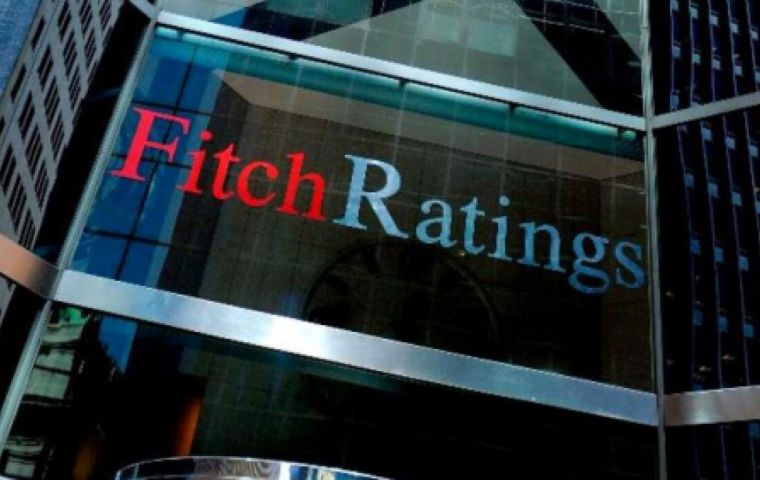MercoPress. South Atlantic News Agency
Fitch praises Uruguay's economy, but points out some risks
 Fitch acknowledged Uruguay's strengths but warned about long-standing issues threatening its financial stability
Fitch acknowledged Uruguay's strengths but warned about long-standing issues threatening its financial stability Fitch Ratings held Uruguay's grading as “BBB” with a “stable” outlook, but pointed out some risks the South American country should avert. In any case, Montevideo still qualified within the agency's “investment grade.”
This outcome was the consequence of the country's relatively high GDP per capita, strong governance, and solid financial standing, it was explained.
However, the agency warned of only moderate growth prospects in the medium term, a high public debt burden deemed sensitive to changes in exchange rates, and the constant threat of soaring inflation.
”The rating is limited by moderate medium-term economic growth prospects, a public debt burden that rises above the 'BBB' median and is sensitive to exchange rate movements, a long history of high inflation (although improving), and limited policy flexibility due to dollarization, indexation, and shallow financial depth,” Fitch's report mentioned.
The Uruguayan economy's dependence on the US dollar, as well as indexation and a shallow financial depth, restricts the government's ability to respond to economic changes, Fitch also highlighted.
The agency hoped that the new government under President Yamandú Orsi would prioritize economic growth and social spending, amid challenging fiscal constraints. While the current account deficit has improved, Fitch projects a higher-than-expected budget deficit of 4.1% of GDP for 2025, which could pose a risk.
Overall, Fitch acknowledges the country's strengths but cautions that these long-standing issues could still affect its financial stability.




Top Comments
Disclaimer & comment rulesCommenting for this story is now closed.
If you have a Facebook account, become a fan and comment on our Facebook Page!